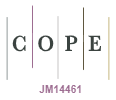From the environment of the student to the teacher practice: looks on the digital technologies in a classroom
DOI:
https://doi.org/10.5585/eccos.n55.8349Keywords:
High school student, Teaching practice, Digital technologiesAbstract
The present article aims to know the student's and teacher's view and to what extent the pedagogical action takes into account the environment with the technologies and how they can aid in learning. It is the result of a study carried out with the Group of Research in Education and Technologies of the Integrated Regional University of Alto Uruguay and of the Missions - URI - Câmpus of Frederico Westphalen, whose methodology is qualitative and descriptive in nature, having as instrument the semi - structured interview. Based on the theoretical study and analysis of the arguments, proposed by authors of the scientific community, we structured the reflections in four categories that address the view that each segment has about the technologies and how much they can still be better used in the school environment, to know: Technology at school, Technology in the classroom, Learning methodology and Digital technologies at school. The text deals with the relevance of reflecting on the pedagogical doing in the premise that the teacher can use the ambience that the student possesses in technology in his social life and insert it into the daily routine of his planning, providing greater interaction and pedagogical practices more participatory to the student subject. We note the need for continuous training so that teachers feel more prepared to insert technological artifacts into their practice as well as to know the languages and how students access information and can build knowledge.
Downloads
References
CARVALHO, Ademar de Lima. Os caminhos perversos da educação: a luta pela apropriação do conhecimento no cotidiano da sala de aula. Cuiabá: Edufmt, 2005.
CHIZZOTTI, Antonio. A pesquisa qualitativa em ciências humanas e sociais: evolução e desafios. Revista Portuguesa de Educação. Braga/Portugal, v. 16, n. 2, 2003. Acesso em: 15 de maio de 2015.
DELORS, Jacques. Educação: Um tesouro a descobrir. 8. ed. Tradução José Carlos Eufrásio. São Paulo: Cortez, Brasília: MEC/UNESCO, 2001.
DEMO, P. Introdução à metodologia da ciência. 2ª Edição. São Paulo. Editora Atlas S.A. 1987. 118 p.
KENSKI, V. M. Pessoas conectadas, integradas e motivadas para aprender... em direção a uma nova socialização na educação. 24ª Reunião Anual da ANPED. Caxambu/MG. Grupo de Trabalho: educação e comunicação – DEZ ANOS, p. 11-32, 2011.
KENSKI, V. M. Educação e tecnologias: o novo ritmo da informação. Campinas- SP: Papirus, 2008.
LÉVY, Pierre. Cibercultura. São Paulo: Editora 34, 1999.
LIBÂNEO, José Carlos. Didática. São Paulo: Cortez, 1991.
LIMA, Roberto Marcio. Cibereducação: TENSÕES, REFLEXÕES E DESAFIOS. Cadernos da Pedagogia. São Carlos, Ano 5 v. 5 n. 10, p. 18-29, jan-jun 2012 ISSN: 1982-4440.
MINAYO, M. C. S. (org.). Pesquisa Social. Teoria, método e criatividade. Petrópolis: Vozes, 1994. 17 ed.
NÓVOA, Antonio. Formação de professores e trabalho pedagógico. Lisboa/Portugal: Educa, 2002.
NÓVOA, Antonio. Os professores na virada do milênio: do excesso dos discursos à pobreza das práticas. Educação e Pesquisa. São Paulo, v. 25, n. 1, p. 1-15, jan/jun.1997.
OLIVEIRA-FORMOSINHO. J; KISHIMOTO, T. M; PINAZZA, M. A. Pedagogia(s) da Infância: Dialogando com o Passado, Construindo o futuro. Porta Alegre: Artmed, 2007.
PRENSKY, Marc. Não me atrapalhe, mãe – Eu estou aprendendo! São Paulo: Phorte, 2010. 320 p.
VALENTE, José Armando (org). O computador na Sociedade do Conhecimento. Campinas: UNICAMP/NIED, 1999.
Downloads
Published
How to Cite
Issue
Section
License
Copyright (c) 2020 EccoS – Revista Científica

This work is licensed under a Creative Commons Attribution-NonCommercial-ShareAlike 4.0 International License.
- Abstract 911
- PDF (Português (Brasil)) 833






